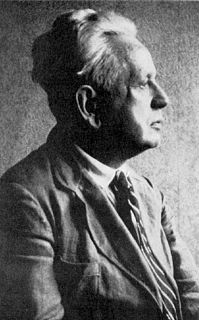A Quote by Thomas B. Macaulay
No man in the world acts up to his own standard of right.
Related Quotes
According to the technical language of old writers, a thing and its qualities are described as subject and attributes; and thus a man's faculties and acts are attributes of which he is the subject. The mind is the subject in which ideas inhere. Moreover, the man's faculties and acts are employed upon external objects; and from objects all his sensations arise. Hence the part of a man's knowledge which belongs to his own mind, is subjective: that which flows in upon him from the world external to him, is objective.
Man is always inclined to regard the small circle in which he lives as the center of the world and to make his particular, private life the standard of the universe and to make his particular, private life the standard of the universe. But he must give up this vain pretense, this petty provincial way of thinking and judging.
Man is naturally self-centered and he is inclined to regard expediency as the supreme standard for what is right and wrong. However, we must not convert an inclination into an axiom that just as man's perceptions cannot operate outside time and space, so his motivations cannot operate outside expediency; that man can never transcend his own self. The most fatal trap into which thinking may fall is the equation of existence and expediency.
Faith is the commitment of one's consciousness to beliefs for which one has no sensory evidence or rational proof. When man rejects reason as his standard of judgement, only one alternative standard remains to him: his feelings. A mystic is a man who treats his feelings as tools of cognition. Faith is the equation of feelings with knowledge


































